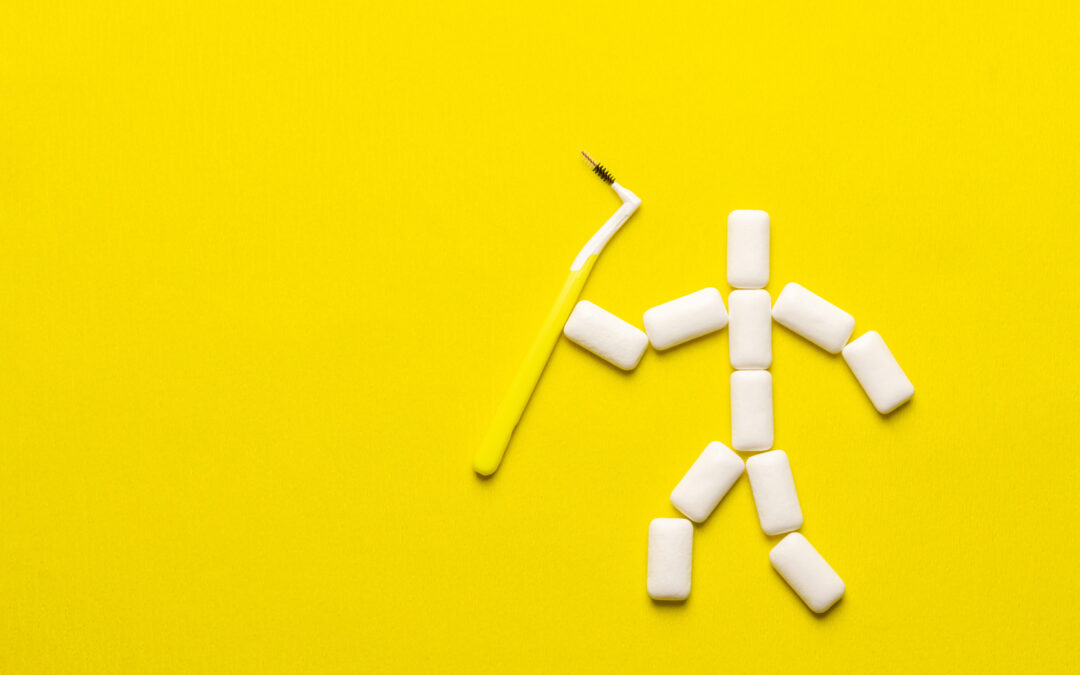There are so many reasons people chew gum. Maybe it is to help quit smoking, freshen their breath before an appointment, or keep from snacking. Whatever the reasons are, gum chewing has been a favorite hobby of Americans for hundreds of years. But what does chewing gum do to your teeth? Are the rumors that it is good for your teeth true? Let us take a closer look.
Sugar-Free Gum
Surprise! Most sugar-free gums get the ADA (American Dental Association) seal of approval.
The ADA considers any gum that contains less than 0.5 grams of sugar per serving as “sugar-free.” This type of chewing gum may contain other sugar alternatives for sweetening, such as stevia, sucralose, or xylitol. Sugar-free gums are not only lower calorie than their sugary counterparts, but they are also known to stop the growth of plaque bacteria.
Helps to Clean Teeth
Sugar-free gum can help to clean your teeth in between brushing. In fact, studies have shown that chewing sugar-free gum after eating can help neutralize the acids that cause plaque. Chewing gum also stimulates saliva production, which can help keep your mouth clean and hydrated.
Chewing Gum May Not be For Everyone
While chewing gum is harmless and even beneficial to most, there are some instances where it is not recommended. For example, if you are experiencing pain in your mouth or have cracked or painful teeth, gum should be avoided until you see a dentist.
Gum Chewing Does Not Replace Brushing and Flossing
Although chewing gum after a meal can help clean your teeth, it should not be used to replace brushing or flossing. Remember to brush and floss at least twice a day and see your dentist every six months for a professional cleaning.
Whether you chew gum or not, it is essential to keep up with your dental appointments.
Call Huntingdon Valley Dental Arts for an appointment with Dr. Zola Makrauer or Dr. Julie Miller today!
